Biden and Xi, not Morrison, will make Glasgow climate summit a failure
Xi Jinping has no intention of doing what is needed, while Joe Biden has no ability. Anyone who tells you the world is on a path to net-zero emissions after this is pulling your leg.
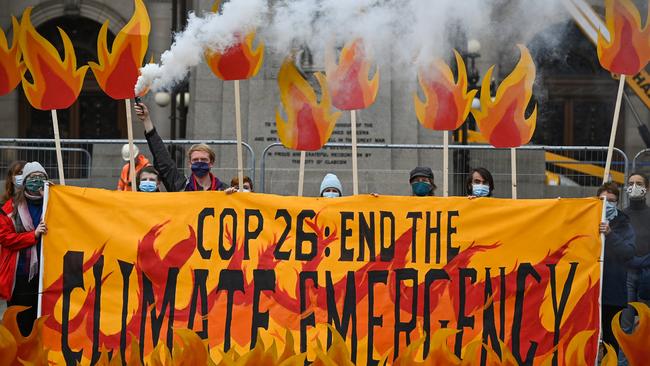
Its failure will be symbolised by the presence of US President Joe Biden, and the absence of China’s President Xi Jinping.
China is the No.1 emitter of greenhouse gases in the world, the US is No.2. Xi has no intention of doing what would be necessary for COP26 to have a chance of success; Biden has no ability to do what is necessary.
To some extent, these two realities make all other discussions academic.
But that is not the whole story. There are victories at hideous cost, and defeats which encompass a measure of achievement and promise. The best hope for COP26 now is to be that kind of defeat.
Biden is committed to reducing carbon. He has pledged to cut US emissions by 50 per cent by 2030, a huge increase on Barack Obama’s pledge of 18 per cent. Biden also promises net-zero emissions by 2050.
Net zero is a slippery and problematic concept. It means an economy works almost entirely in ways which don’t generate greenhouse emissions. That is impossible, of course. So it’s necessary to remove the residual carbon that civilisation creates. That means planting trees, intensifying vegetation generally, converting farmland to forest, and one or other variety of carbon capture and storage. Other useful technologies may develop, but that’s by no means sure.
Biden’s ambition to decarbonise America is truly radical. The US, like the rest of the world, is a fossil-fuel economy. All the big transformations lie ahead.
Biden has proposed legislative measures to subsidise low-carbon energy, discourage fossil fuels and subsidise almost any activity that is carbon neutral.
But to enact such a social revolution, he needs either broad consensus or a slashing victory after a full debate. Biden’s USA does not satisfy either of those conditions.
Biden’s victory over Donald Trump was solid enough, but no landslide. The continuing ideological contest was evident in Biden’s Democratic Party going backwards in the House of Representatives in 2020. The Senate is a 50/50 tie, controlled by the Democrats through Vice-President Kamala Harris’s casting vote.
Here’s the rub. Biden goes to Glasgow unable to get congress to pass his climate bills. Rounding out the figures, Biden has proposed two spending bills of a total of about $US4 trillion over a decade, a truly eye-watering amount. These provide for physical infrastructure, social-welfare spending, tax increases and vast climate-change proposals.

His fellow Democrats won’t pass these bills – two Democrats in particular, senators Joe Manchin from West Virginia and Krysten Sinema of Arizona. Consequently, Biden has nearly halved the combined spending in his two bills. A slimmed-down infrastructure package was passed by the House of Representatives but has not gone to the Senate.
The bigger bill, including all the climate stuff, has not been passed by either house and may not get through in anything like even its diluted form.
Manchin’s West Virginia is poor and relies on coal. A decade ago, Manchin pinned a copy of Obama’s carbon cap and trade legislation to a tree and shot it to bits with a rifle.
Already, he has forced Biden to include in his climate provisions continuing tax credits for fossil-fuel development. You might say Manchin has no place in the contemporary Democratic Party, but he keeps winning elections. If he were gone, the Republicans would win his seat.
West Virginia’s other senator (each state has two senators), Shelley Moore Capito, is a Republican, well to the right of Manchin and votes against the whole of Biden’s legislation.
The top four greenhouse gas emitters are China, the US, India and Russia. The only one with a net-zero by 2050 target is the US. Under Trump, the US had withdrawn from the COP process altogether. Even under Biden, with Democratic control of both houses of congress, Washington seemingly cannot deliver.
Biden’s chances of doing more as his term goes on look bleak. His approval rating has fallen drastically and hovers around 40 per cent, the lowest of any president at this stage other than Trump. It’s likely, not certain, the Democrats will lose the House of Representatives in next year’s mid-term elections.
Next Tuesday, Virginia, a safe Democratic state for nearly two decades, elects a new governor. The Republican candidate has edged ahead in the polls. If the Democrats lose Virginia one year after Biden’s election, this will be a devastating blow to Democrat morale and convince Republicans to go harder than ever against Biden. For this to happen early in the COP26 conference, which runs for two weeks but will involve national leaders only for a couple of days, would humiliate Biden.
Not only are Biden’s overall numbers poor, those who dislike him feel much more strongly about it than those who approve of him. Twice as many voters believe the country is heading in the wrong direction than those who believe it’s on the right track. When Biden was elected, only a minority of voters thought the federal government was trying to do too many things. Now, a clear majority complain that the government is trying to do too much. A clear majority also want lower taxes, whereas Biden’s climate program requires massive government spending. So that’s the US.
What about China? COP26 is the Conference of Parties. There has been a COP every year since 1992. COP is the formal United Nations process for tackling climate change. It produced the Kyoto Protocol in 1997, which committed nations to trying to reduce their greenhouse-gas emissions by specific amounts. It produced an extravagant failure at Copenhagen in 2009. Then it produced a pretend victory at Paris in 2015.
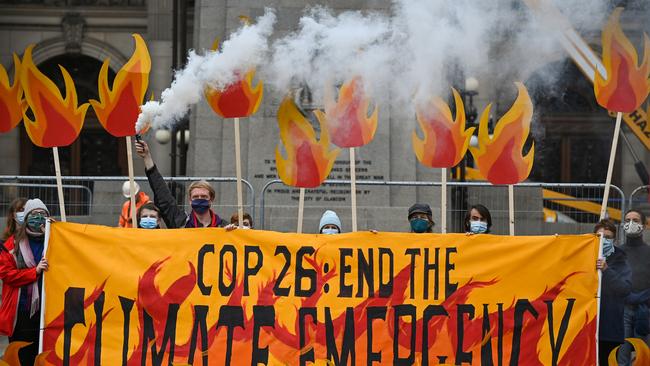
Having seen the PR disaster of open failure in Copenhagen, the COP process at Paris produced a pretty hollow agreement. Its spruikers claim it was legally binding, but each nation was left to work out its own target, its so-called Nationally Determined Contribution, and there were no enforcement mechanisms. Since way back in 1992, under the UN Framework Convention on Climate Change, agreements have divided nations into two types, saying their greenhouse-gas reduction commitments would reflect “common but differentiated responsibilities and respective capabilities”. This means developed countries had to cut emissions hard, while developing economies could continue to increase their emissions, but had to take action to move to less-carbon-emitting technologies.
Most developing nations have substantially reduced their emissions intensity – that is, they get each unit of economic output at a substantially lower level of carbon. But most of them are continuing to increase the absolute amount of carbon emissions.
So far, the US, Canada, Western Europe, Japan, South Korea and Australia have committed to net zero by 2050. It’s legitimate to have the greatest scepticism about whether these targets will be met. But even if they are met, they account for only a half or less of the world’s total emissions.
China, Russia and Saudi Arabia have committed to net zero by 2060. India and Indonesia have not yet committed to net zero on any timeline, although there is a strand of academic analysis that plots routes which could, with massive renewable energy investments and overseas aid, see India and Indonesia perhaps get to net zero by 2070.
But even if all these ambitions are met, and that’s a pretty heroic assumption, there is no way that keeps emissions below the level which the UN says would result in a global temperature rise of no more than 1.5C since the 19th century. It wouldn’t even keep the temperature rise to 2C, or anything like it.
As Biden’s climate envoy, John Kerry, has pointed out, if China doesn’t come to the party, the rest of the world can knock its brains out and emissions will still rise much faster than any model which keeps temperature rises down to 2C or even 3C.
Because China is so central, people most attached to the climate change cause constantly look for ways to pretend that black is white, up is down and two plus two equals one, when it comes to China. Responding to the record high price of coal, and a seasonal energy and heating shortage in some of its cities, Beijing decided to increase by 220 million metric tonnes its annual coal production.
According to The New York Times, this increment in coal production, on its own, will increase global CO2 emissions by 1 per cent. And it has a vast pipeline of new coal-fired power stations it is building, though it has agreed not to finance any more beyond China’s own borders.
Beijing did this in the full glare of Glasgow COP26 global publicity. The truth is these issues do not have anything like the salience, anywhere in Asia, that they have in Europe, North America or Australia. This is not a rhetorical statement, just an observation of reality. Climate change is a reasonably significant political issue in Japan and South Korea, but it doesn’t have much traction elsewhere in Asia.
India, for example, has 700,000 jobs in coal. Half its rail-freight revenue is in coal. It has more than 100 million people still in desperate poverty. It has no intention of going pure green before it escapes poverty.
China is the most important member of the so-called Like-Minded Developing Countries coalition – the group also includes India, Indonesia, Egypt and Saudi Arabia. This coalition issued a trenchant statement rejecting the idea that all nations had to embrace net zero, saying this would cut against “equity and climate justice”.
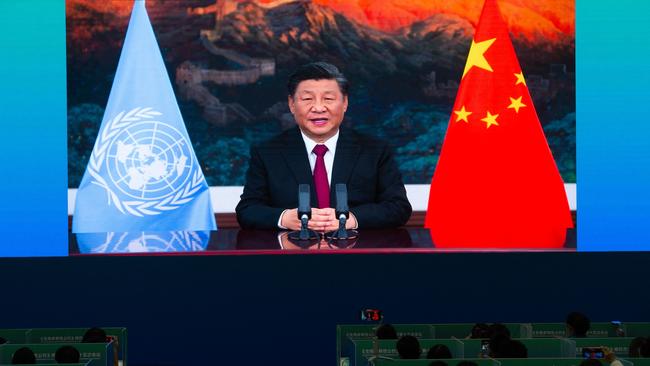
In fact, China is responsible for the second-largest quantity of historical greenhouse emissions – behind only the US – but whatever the rhetoric, the COP26 ambitions simply cannot remotely be realised if big emitters like China and Russia take that view.
Australia’s record is perfectly respectable.
If, as the Morrison government now claims, we reduce emissions by 35 per cent by 2030 compared with 2005, that will probably be at the higher end of actual performance for developed nations. Given the structure of our economy and the rate of our population increase, it’s more than respectable.
The move to cut greenhouse emissions and transform the global economy has not so far been very successful. According to Canadian scientist Vaclav Smil, in the 30 years of climate activism since 1992, the world has moved from getting 87 per cent of its energy from fossil fuels to 83 per cent. Does that mean that COP26 is a complete waste of time? Not at all. Several specific proposals have, it is true, already been defeated. The British wanted an agreement to end coal use by 2030. That’s a complete non-starter. The US wants to cut global methane use by 30 per cent. That won’t work either.
But the political movement to cut emissions in the rich countries does mean that huge resources will be poured into carbon-neutral technology and that can only be good.
A Western-only commitment can also be destructive, however. Any Western nation can notionally cut its national emissions by closing aluminium smelters and ammonia factories and the like, and then buy the same products from China. The result is a net rise in global emissions.
Nonetheless, Western banks and development agencies won’t finance coal any longer, or most fossil fuels. That doesn’t mean they won’t be financed from other sources, but it will encourage low-carbon alternatives.
Virtually all global business brands are now pledged to work towards net zero, whether from conviction, fear of consumer boycotts, or other motives. This will have an effect.
Glasgow will have its value. We will make some progress. But anyone who tells you the world is on a path to net-zero emissions as a result is pulling your leg.
Such claims are themselves an infinitely renewable resource. Their market value, however, is not high.


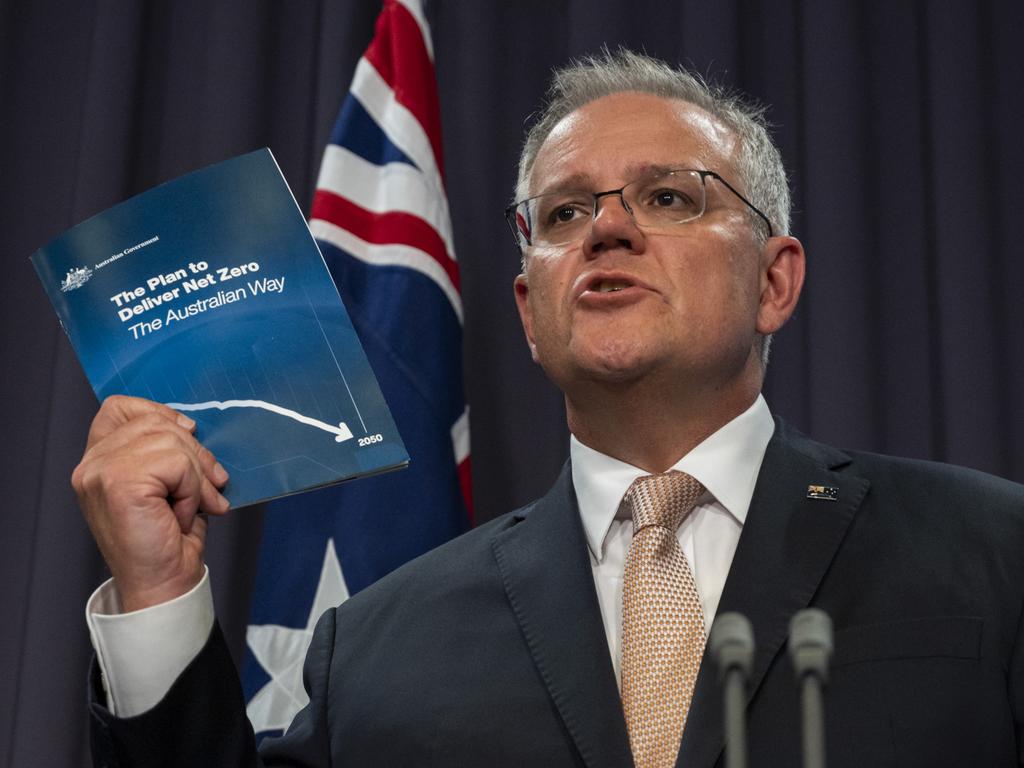
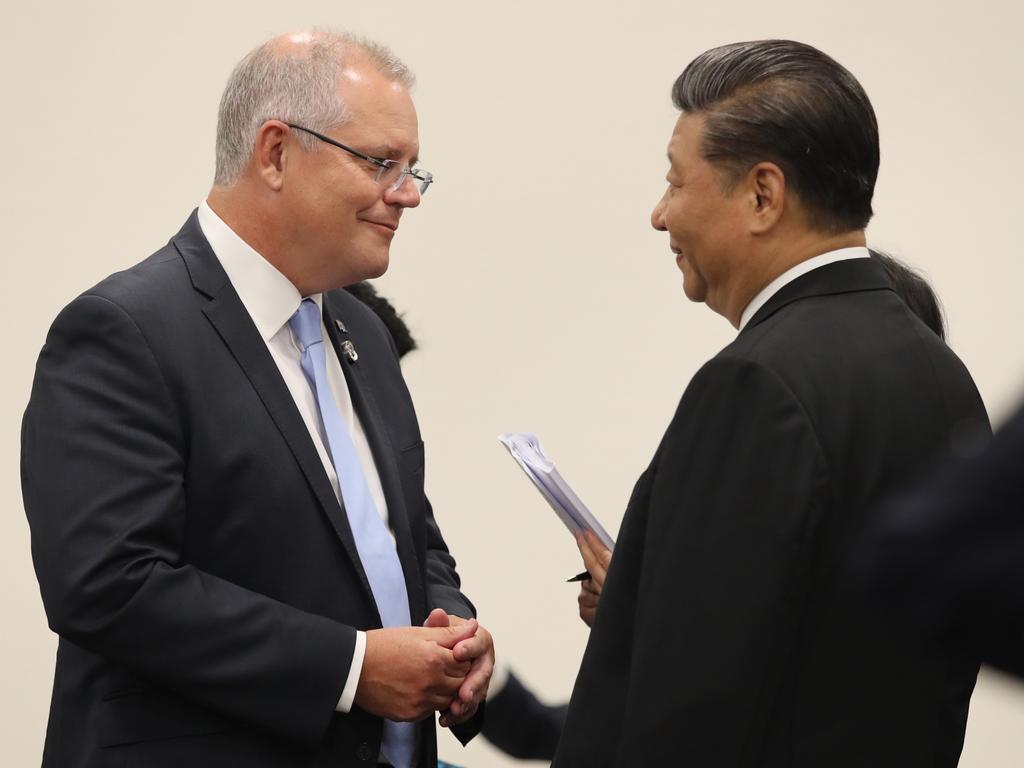



COP26 in Glasgow will fail, in its own terms. It will not reach binding agreements that will guarantee that the world’s temperature does not rise beyond 1.5 degrees Celsius above pre-industrial times.